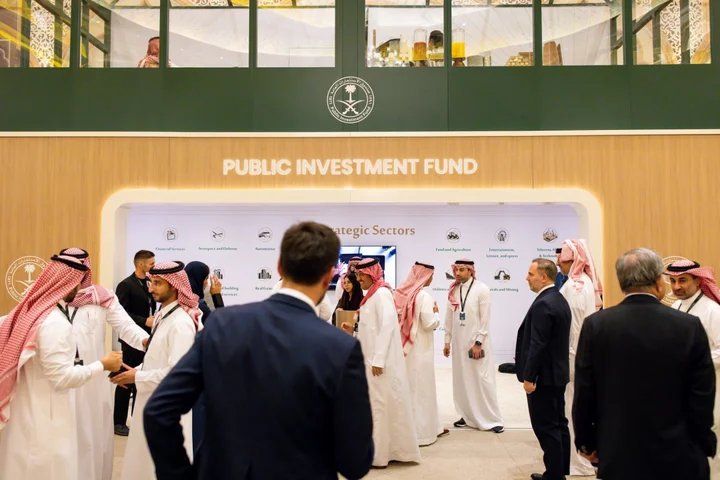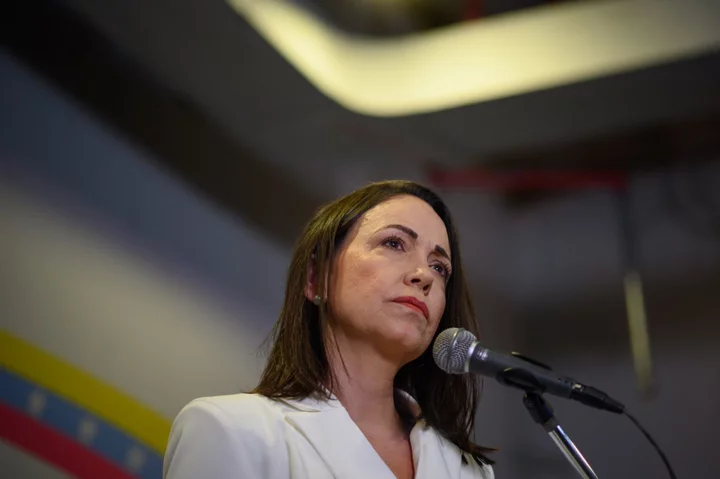Saudi Arabia’s sovereign wealth fund has hired banks for a debut Islamic dollar bond sale to help finance its global spending plans, people familiar with the matter said.
The Public Investment Fund, which manages about $778 billion in assets, mandated HSBC Holdings Plc, Standard Chartered Plc, Emirates NBD Bank PJSC and Al Rajhi Capital for the offering, the people said, asking not to be identified as the information isn’t public. More banks could be added later, they said.
The fund could raise about $3 billion, though the final size of the sukuk could be bigger depending on investor demand, the people said. The offering would be the PIF’s second this year after it raised $5.5 billion in green bonds in February.
A sale could happen before the end of the year, though a final decision hasn’t been made, the people said. The PIF may also decide to delay or shelve the plans because the fund has some financial flexibility, they said. Islamic bonds, or sukuk, is debt that complies with Shariah law.
A representative for HSBC declined to comment. Representatives for Standard Chartered, Al Rajhi Capital and Emirates NBD didn’t immediately respond to requests for comment.
Investment Loss
The PIF’s plans come just weeks after the fund said it took an $11 billion loss on its investments last year after tumbling global stock and bond prices impacted its holdings. That compared with a profit on investment activities of $19 billion in 2021 as markets rallied in the wake of the coronavirus pandemic.
A sale would take place as the PIF seeks to step up a global investment spree intended to wean the kingdom’s economy off oil. In recent months, the PIF has been snapping up stakes in video game makers and electric carmakers, as well as funding new cities in the desert as part of plans to amass $2 trillion in assets by 2030.
The fund is an instrumental part of a diversification plan championed by Crown Prince Mohammed bin Salman after transforming from a domestically-focused holding company into a sovereign fund in 2016. While part of those plans will be funded by oil revenue, the government also needs to attract foreign investment and borrow.
Many key bodies, including the PIF and its subsidiaries developing the new city of Neom, have already borrowed tens of billions of dollars.
The PIF is also likely to be one of the key growth drivers for the local economy this year after Saudi Arabia’s gross domestic product slumped in the second quarter as a drop in oil prices and a decision to cut production pushed the country from being one of the fastest-expanding major economies to one of the slowest.
Meanwhile, borrowing costs in the kingdom have risen to a record, potentially hitting economic-diversification projects. The cost of money as measured by the three-month Saudi Interbank Offered Rate climbed above 6% this week, even higher than it was during the 2008 global financial crisis and after oil prices collapsed in 2020.









